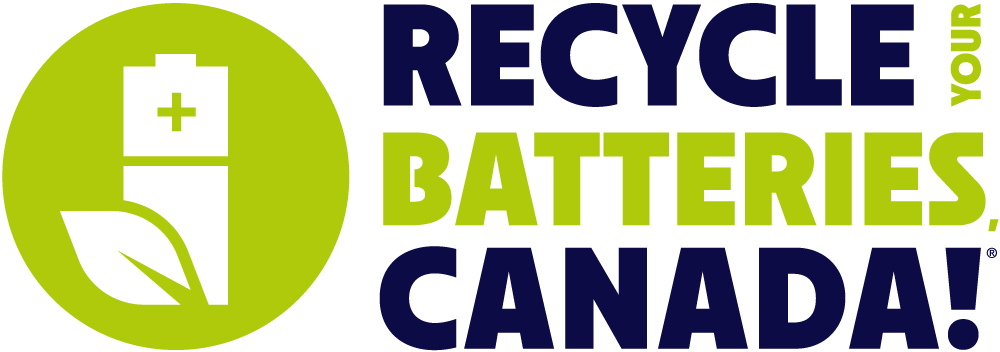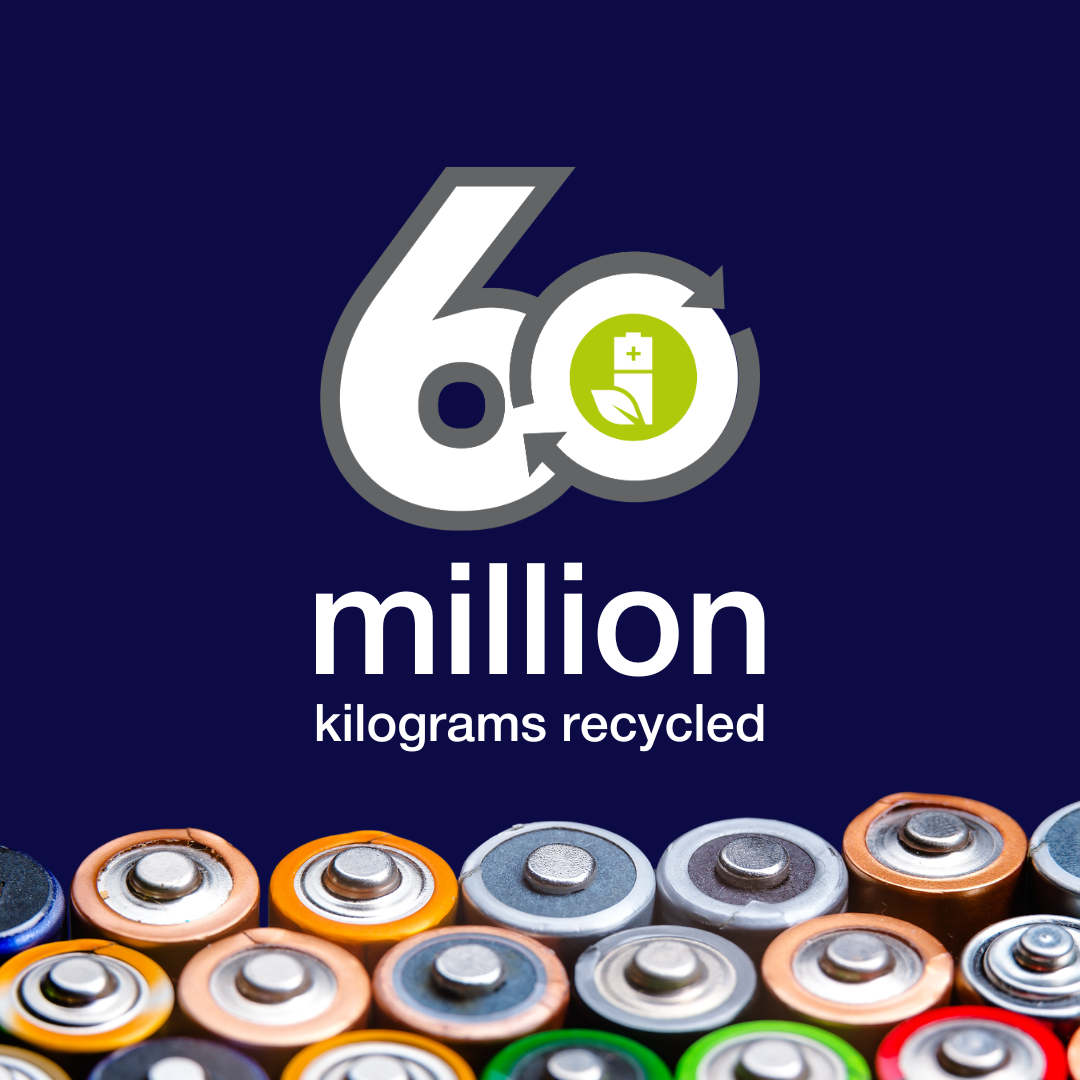Hey, Nova Scotia! Get ready to Collect, Protect, and Drop Off your used batteries!
The Recycle Your Batteries, Canada! program, powered by Call2Recycle, has expanded across the province, offering you more convenient drop-off locations at leading retailers and municipal facilities.
Recycling your used batteries helps protect our environment and recover valuable resources that can be re-used to make new products, supporting a healthy circular economy.
Since 1998, the program has been operating in Nova Scotia on a voluntary basis, championing the cause of battery recycling. Now, your province is taking it a step further by making Recycle Your Batteries, Canada! the official provincial program, across all of Nova Scotia!
So, empty those junk drawers and battery collection jars. Participating Recycle Your Batteries, Canada! collection locations are ready to accept your single-use and rechargeable batteries weighing up to 5 kg. Some locations also take e-bike and e-scooter batteries.
New Producer Responsibility Regulations
Under new provincial regulations that took effect on July 1, 2024, obligated producers (which include battery manufacturers, importers, distributors, and retailers) are now responsible for ensuring that the batteries they produce or sell are responsibly managed at their end-of-life.
The collection and recycling of used batteries is funded by these obligated producers through Environmental Handling Fees (EHFs), applied to applicable batteries and/or products containing batteries. This reduces waste, recovers valuable resources and ensures a sustainable program. It also enables the expansion of accessible recycling options across the province, making it convenient for Nova Scotia residents to recycle their batteries.
Why Recycle Batteries?
Those little rechargeable AAAs and button cells powering your everyday devices might seem harmless but tossing them in the garbage can have both safety and environmental consequences.
If batteries are improperly disposed of at their end-of-life, they can short-circuit or overheat and cause a fire. They also contain some hazardous materials that can harm the environment if they end up in landfills.
Recycling protects people, property, and the environment and gives used batteries a new life, powering a healthy circular economy. The valuable metals and components can be used to manufacture new products, reducing the need to mine virgin resources.
Recycling Your Batteries is Easy!
The process is simple: Collect, Protect, Drop Off.
- Collect: Store household batteries in a non-metal container like a glass or plastic jar. Common household batteries under 5 kg are welcome, including AA, AAA, C, D, 9V, button cells, and rechargeable batteries. Some locations also accept e-bike and e-scooter batteries!
- Protect: Tape over the terminals of lithium, rechargeable and alkaline batteries over 9V to prevent sparks. Then store your batteries in a cool dry location, away from the sun.
- Drop Off: Drop off your batteries at least every 3 months to avoid corrosion. Enter your postal code below to find your closest drop-off location. As the program ramps up, new locations will be popping up across the province!
Battery Recycling Facts:
- Nova Scotia is the 7th province to enact regulations for the safe and responsible collection of household batteries.
- Battery recycling keeps chemicals and metal components out of landfills. These recovered materials get a second life, becoming parts of new products, like stainless steel products!
- In 2023, the Recycle Your Batteries, Canada! program collected and recycled nearly 6 million kilograms of batteries, diverting enough precious metals from Canadian landfills to produce the equivalent of nearly 37 million new cell phone batteries and enough steel to produce the equivalent of over 278 million AA alkaline batteries.
- Since its inception in 1997, the Recycle Your Batteries, Canada! program has diverted over 45 million kilograms of batteries from Canadian landfills.
Frequently Asked Questions
‘Recycle Your Batteries, Canada!’ is a battery collection and recycling program run by Call2Recycle Canada, Inc., a not-for-profit organization founded in 1997 to protect and preserve the environment.
Nova Scotia has implemented new regulations that hold brand owners responsible for the safe management of batteries at end-of-life. Recycle Your Batteries, Canada! which has been voluntarily collecting batteries since 1998, is now the government-approved battery recycling program in Nova Scotia. Starting July 1, 2024, multiple battery drop–off sites will be available across the province, making it more convenient for Nova Scotia residents, retailers, municipalities, and other organizations to recycle their batteries.
The Recycle Your Batteries, Canada! program accepts household batteries, including single-use and rechargeable batteries (weighing up to 5 kg each), as well as e-mobility batteries used to power devices such as e-bikes and e-scooters. Learn more here.
You can recycle your batteries at participating Recycle Your Batteries, Canada! collection sites across Nova Scotia, including pharmacies, hardware stores, grocery stores, municipal depots, and other facilities. Use our locator to find the one closest to you.
All collected batteries are shipped to sorters, before being sent to qualified recycling facilities where valuable materials like nickel, lithium, and cobalt are recovered. These materials are then used in the manufacturing of new products, including new batteries and stainless steel products, such as bicycles or golf clubs. Learn more here.
By properly recycling household batteries, Canadians can keep harmful materials out of landfills, prevent battery-related fires, and ensure valuable metals are reclaimed for reuse, reducing the need for mining virgin materials.
Funding for the Nova Scotia battery recycling program comes from Environmental Handling Fees (EHFs) remitted to Call2Recycle by the obligated producer. This funding model is consistent with approaches used for battery recycling programs in other regulated provinces and stewardship programs across Canada.
An environmental handling fee (EHF) is applied to certain products, to cover the cost of safely collecting and responsibly recycling them at their end-of-life.
EHFs are remitted by obligated parties, which can be a retailer, wholesaler, distributor, or manufacturer. It is left to the discretion of the obligated party to determine whether to pass along the EHF to consumers. The obligated party has the flexibility to make it visible or hidden.
EHFs are applied to primary/single-use and rechargeable batteries sold as stand-alone items or for replacement purposes, as well as batteries sold in or with a variety of products.
No, there is no fee charged when you drop off batteries at collection sites to be recycled. EHFs cover the cost of recycling cost.
The collection program is available to qualifying businesses and public agencies, including retail locations, manufacturers, property managers, waste management facilities, and local government.
If you represent a business or public agency, click here to learn more about becoming a collection partner, or fill out this electronic form to get started.









